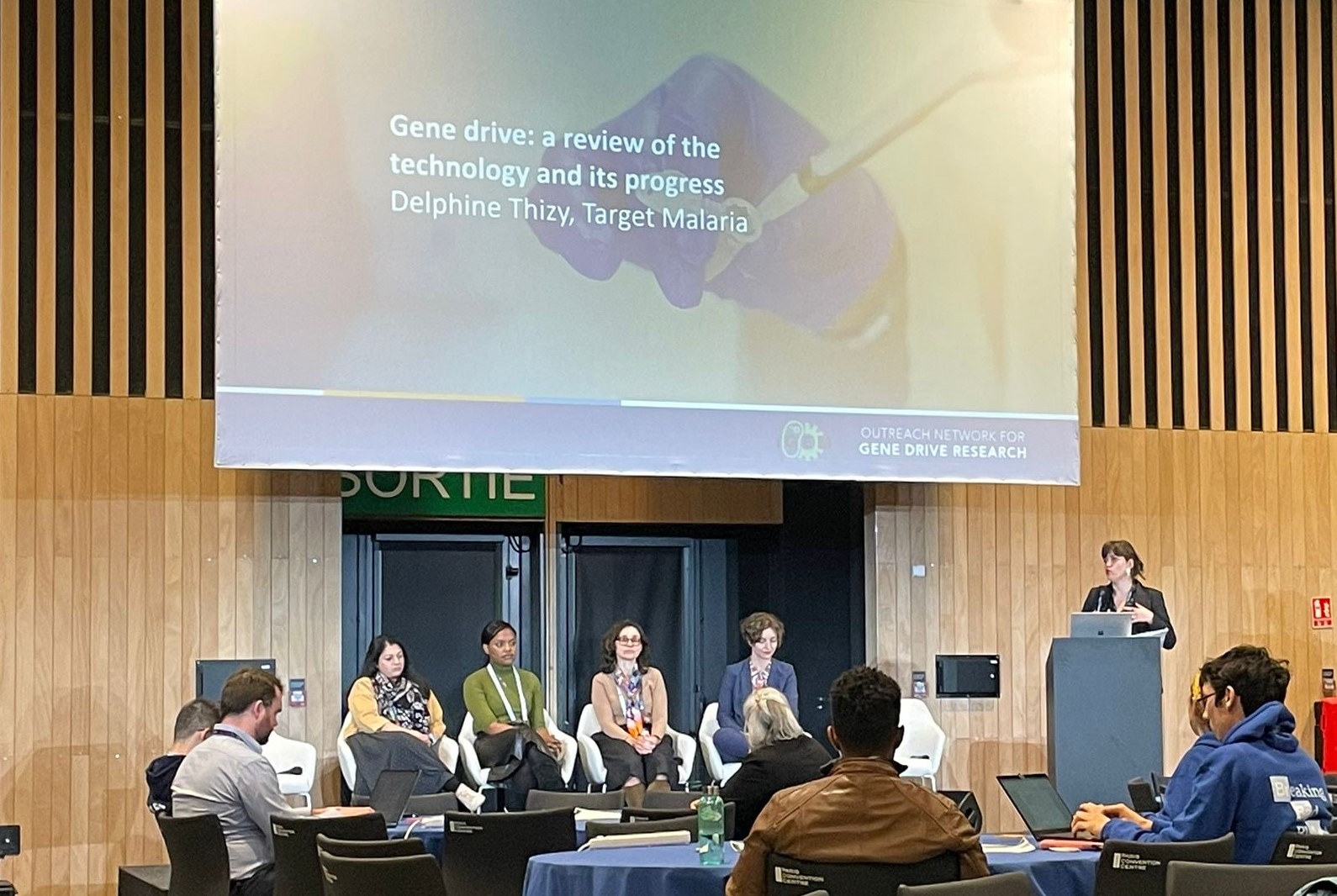By Dr. Aditi Mankad, Principal Research Scientist, Commonwealth Scientific & Industrial Research Organisation (CSIRO)
On November 3, I had the pleasure of participating in an interactive event organized by the Outreach Network for Gene Drive Research at iGEM Foundation’s 2023 Grand Jamboree. The session, held as part of the event’s offshoot Responsibility Conference, focused on the responsible field evaluation of gene drives and tackled complex topics, including how to effectively communicate technically challenging research and the nuances of ethical practices within the field.
I shared the stage with speakers from various fields: Claudia Emerson, Institute on Ethics & Policy for Innovation (IEPI),Tessa Alexanian, Council on Strategic Risks, as well as Naima Sykes and Delphine Thizy, Target Malaria. This panel came together to present practical insights on ethical and social considerations for field evaluations of gene drives, drawing on panelists’ diverse range of expertise in ethics and stakeholder engagement.
 Panel moderated by Delphine Thizy, discussing “How to undertake Responsible Field Evaluations: Engagement & Ethics Perspectives for Gene Drives”.
Panel moderated by Delphine Thizy, discussing “How to undertake Responsible Field Evaluations: Engagement & Ethics Perspectives for Gene Drives”.
My intervention focused on CSIRO’s research on Public perspectives towards using gene drive for invasive species management in Australia, particularly for the control of feral cats. I introduced the study and delved into its findings which reveal the level of support for the potential implementation of this technology, and the multiple societal and geographical factors at play.
The panel then turned to the audience to engage with iGEM’s community members, policymakers, and academics, and discuss what it takes to integrate stakeholder views into research and development of gene drives, as well as how to build trust with external stakeholders, including those directly affected by the technology. The interactive discussions that followed underscored the participants’ curiosity and willingness to understand not only the benefits and risks associated with gene drives, but also how ethical and social considerations for gene drives can help better inform other branches of synthetic biology.
It was inspiring to hear young scientists and those poised to shape future policy dissect ethical complexities and propose forward-thinking solutions. Exchanges like these provide us with the opportunity to discuss the importance of innovating and exploring solutions that are not only scientifically sound but also ethically conscious and socially accepted. The path forward for gene drive research is one that requires us to listen, engage, and learn from each other.
Recent posts
